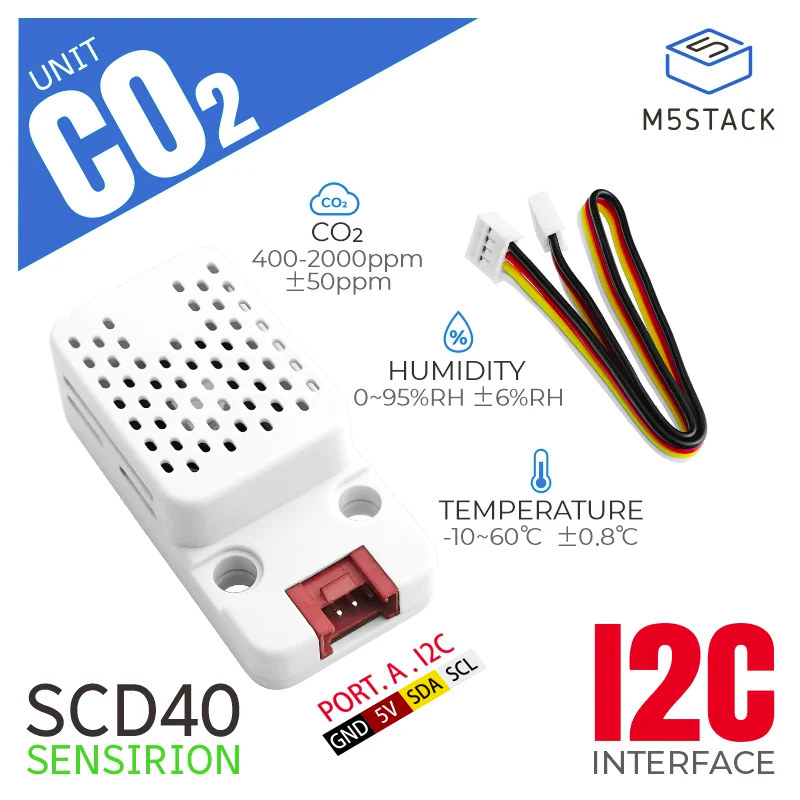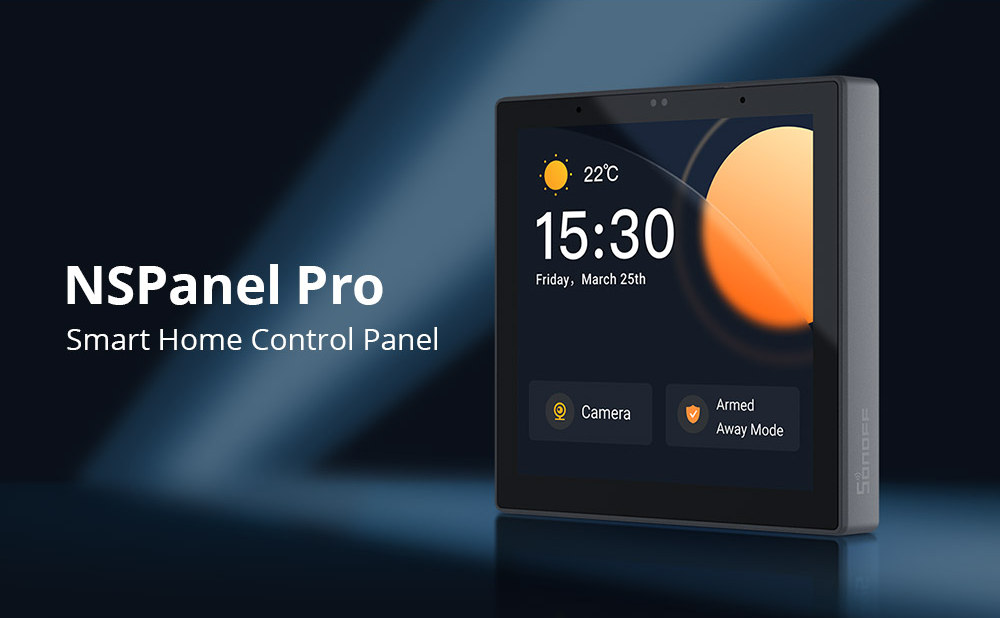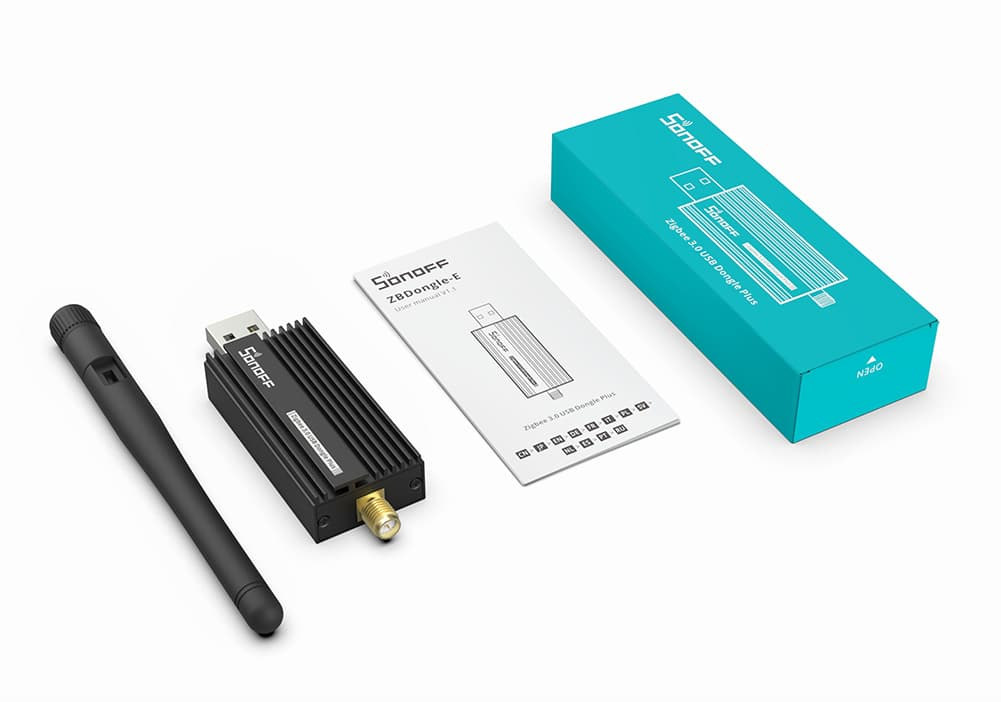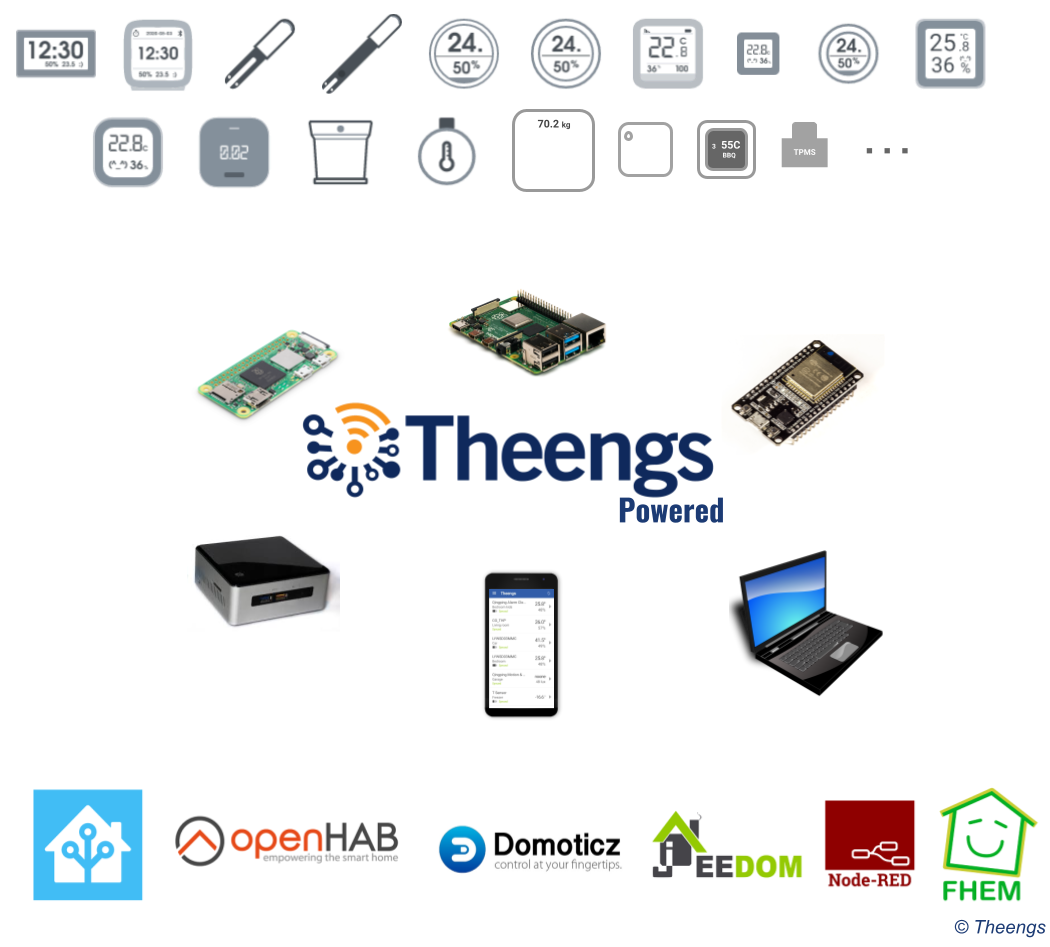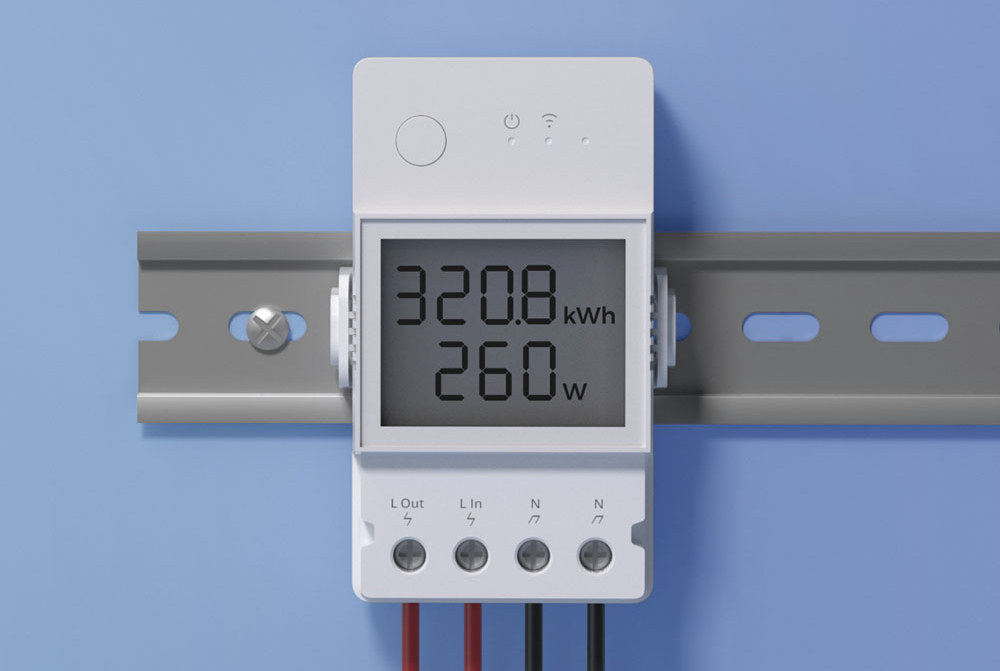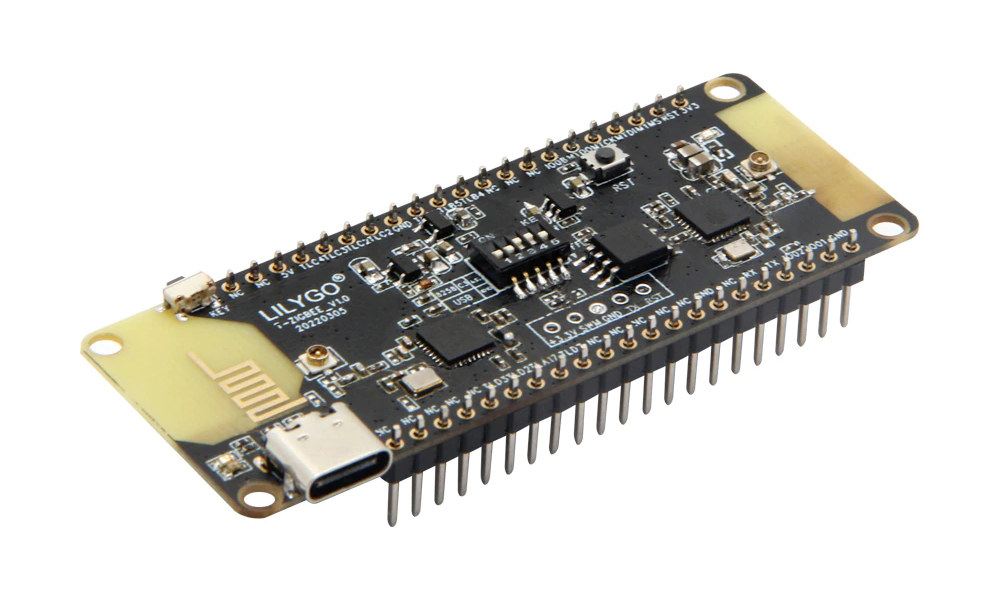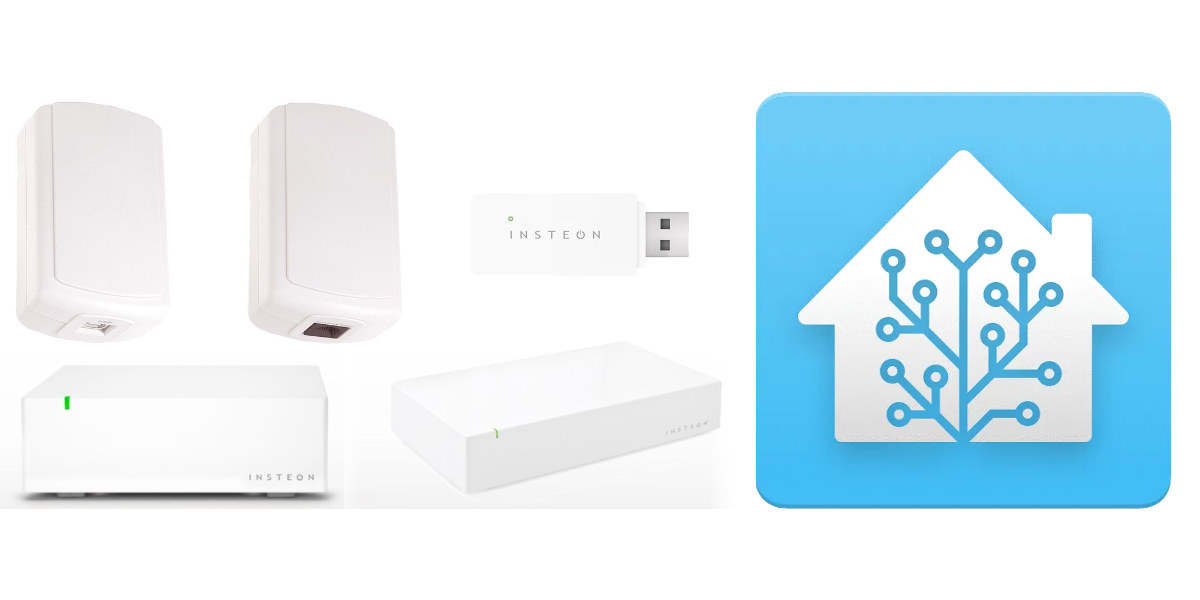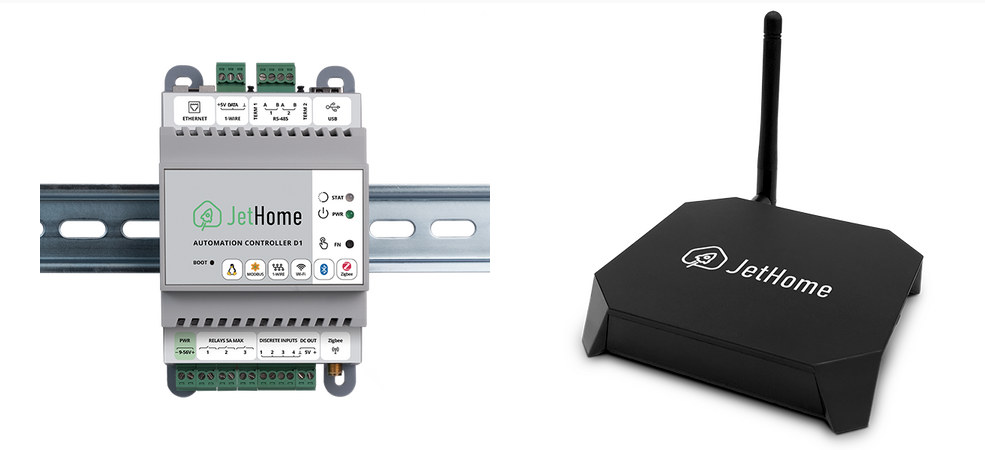We just wrote about the Infineon XENSIV PAS CO2 Shield2Go board to measure carbon dioxide (CO2) levels last week, but I’ve just come across two more hardware with a CO2 sensor designed for makers, but based on Sensirion SCD40 sensor instead, and mostly designed to monitor indoor CO2 levels since high concentrations may impact your health negatively. The first one is the M5Stack UNIT CO2 that’s designed to be connected to one of the company’s Core modules through an I2C interface, and TeHyBug portable mini sensor device equipped with ESP8285 WiFi microcontroller, as well as optional AHT10 temperature & humidity sensor and BMP280 pressure sensor, besides the SCD40 sensor. M5Stack UNIT CO2 Specifications: Sensirion SCD40 sensor CO2 Measurement range – 400 ~ 2000 ppm CO2 Sampling accuracy – ±(50 ppm + 5% of reading) Temperature range – -10 – 60°C with 0.8°C accuracy Humidity range – 0 – 95% RH […]
SONOFF NSPanel Pro Android control panel doubles as WiFi & Zigbee Smart Home gateway
ITEAD has introduced the SONOFF NSPanel Pro Smart Home control panel running Android 8.1 on a Rockchip PX30 quad-core Cortex-A35 processor and acting as a Smart Home gateway thanks to an 802.15.4 radio for Zigbee 3.0, and 2.4 GHz 802.11b WiFi for connectivity. The NSPanel Pro follows the ESP32-powered SONOFF NSPanel introduced just last year but offers much more flexibility with Android, 2GB RAM, 8GB eMMC flash, and also offers a slightly larger 3.95-inch capacitive touchscreen display with 480×480 resolution. SONOFF NSPanel Pro specifications: SoC – Rockchip PX30 quad-core Cortex-A35 processor with Arm Mali-G31 GPU System Memory – 2GB DDR3 Storage – 8GB eMMC 5.1 flash Display – 3.95-inch capacitive touchscreen color TFT display with 480×480 resolution Audio – 1W speaker, digital microphone for two-way communication (intercom) Connectivity 802.15.4 radio with Zigbee 3.0 support. Matter and BLE Mesh scheduled for 2023 2.4 GHz 802.11b WiFi Sensor – Light sensor for […]
Sonoff ZBDongle-E Zigbee 3.0 USB dongle features EFR32MG21 MCU with +20dBm radio
ITEAD has just released a new “ZBDongle-E” Zigbee 3.0 USB adapter with Silicon Labs Mighty Gecko EFR32MG21 Arm Cortex-M33 microcontroller with a +20dBm radio for extended range. The new dongle is an alternative to the popular Texas Instruments CC2652P-based Sonoff Zigbee 3.0 USB Dongle Plus, also known as “ZBDongle-P”, with a more compact design, and many of the same features. Sonoff ZBDongle-E specifications: Wireless MCU – Silicon Labs EFR32MG21 Arm Cortex-M33 multiprotocol wireless MCU @ 80 MHz with 64KB RAM, 768KB flash, +20 dBm 802.15.4 radio for Zigbee 3.0 and Thread support, and as well as a Bluetooth 5.1 Low Energy radio Connectivity – Zigbee 3.0 with SMA antenna connector, +20 dBm output power Host interface – USB port with CH9102F USB to TTL chip Expansion – 7-pin IO header with programming pins Misc – Boot and reset buttons, Zigbee LED, Power LED Power Supply – 5V/100mA via USB port, […]
Theengs open-source tools to decode BLE sensors work on ESP32, Raspberry Pi, Android phone, etc…
Theengs is a manufacturer agnostic open-source set of tools to decode BLE sensors and integrate those into smart home and IoT solutions such as Home Assistant with notably support for autodiscovery to automatically create the sensor. Theengs can be installed on various hardware from ESP32 to an Android phone or a Raspberry Pi SBC, and the solution currently supports close to forty BLE sensors from various companies including Xiaomi, Honeywell, and RuuviTag. There are six components: The Theengs Decoder library developed in C++ for portability and translating data from sensors into human-readable data using the JSON format. The Python-based Theengs Gateway acting as a BLE to MQTT bridge for Home Assistant, OpenHAB, and NodeRED integration. It relies on the Theengs Decoder library and publishes the sensors broadcasted BLE information to an MQTT broker. The OpenMQTTGateway is also BLE to MQTT bridge, but instead of targetting Linux-capable hardware like Raspberry […]
SONOFF POW Elite ESP32 WiFi power meter switch handles up to 20A load
SONOFF POW Elite is an ESP32-powered smart power meter switch that can handle up to 20A max load to monitor the power consumption of all appliances in a whole room. The data can be visualized in real-time on the built-in LCD or via the eWelink app, up to six-month of hourly power consumption history can be saved, and the system can also be integrated with third-party solutions such as a Home Assistant, IFTTT, and Alexa Energy dashboard. SONOFF POW Elite specifications: WiSoC – Espressif Systems ESP32 dual-core Xtenxa processor @ up to 240 MHz with 2.4 GHz WiFi 4 and Bluetooth 4.2 connectivity Wireless – 2.4GHz 802.11 b/g/n WiFi 4 (Bluetooth does not seem to be used) Power Input/Output POWR316D model – 100-240V~ 50/60Hz 16A Max POWR320D model – 100-240V~50/60Hz 20A Max Dimensions – 98 x 54 x 31mm (DIN Rail mountable) Casing Material – PC V0 (Tested with UL94v-0 […]
$10 T-Zigbee board combines ESP32-C3 and TLSR8258 for Zigbee 3.0, WIFi and BLE connectivity
LilyGO T-Zigbee board combines ESP32-C3 WiFi and BLE wireless microcontroller and Telink TLSR8258 multi-protocol wireless SoC compatible with BLE 5 Mesh, Zigbee, RF4CE, Thread, 6LoWPAN, HomeKit, ANT, and 2.4GHz proprietary standards. As I understand it, T-Zigbee is designed to act as a Zigbee to WiFi bridge, and is compatible with Zigbee2MQTT and Home Assistant, allowing easy integration into your home automation setup. Based on the hardware, I’d assume it may be usable as a BLE to MQTT gateway as well, in a fashion similar to GL.inet GL-S10 gateway, for people willing to work on the software/firmware. T-Zigbee specifications: Wireless MCUs Espressif Systems ESP32-C3 RISC-V processor with WiFi 4 and Bluetooth 5.0 LE connectivity Telink Semiconductors TLSR8258 (PDF product brief) Arm Cortex-M0 multiprotocol microcontroller @ 48 MHz with BLE 5 Mesh, Zigbee, RF4CE, Thread, 6LoWPAN, HomeKit, ANT, and 2.4GHz proprietary connectivity Antennas – 2x PCB antennas, 2x u.FL antenna connectors USB […]
Home Assistant gives new life to Insteon Smart Home products following Smartlabs bankruptcy
Smartlabs used to sell Insteon Smart Home products, but the company is now in bankruptcy proceedings, its cloud has been turned off, and users have reported their products not working since April 14. Going to Insteon website confirms the problem: …the company engaged in a sales process in November, 2021. The goal was to find a parent for the company and continue to invest in new products and the technology. The process resulted in several interested parties and a sale was expected to be realized in the March timeframe. Unfortunately, that sale did not materialize. Consequently, the company was assigned to a financial services firm in March to optimize the assets of the company. IoT and Smart Home products going offline are nothing new, either because the company is going bankrupt or the product is not profitable anymore. It happens to me with Weloop Hey 3S smartwatch which I still […]
JetHome JetHub D1 is a Linux automation controller based on Amlogic A113X SoC
I discovered JetHome Jethub D1 and Jethub H1 Linux automation controller based on respectively Amlogic A113X and S905X SoCs in Linux 5.16 changelog, as both platforms got upstreamed to mainline Linux. I had never heard of JetHome, a Russian company based in St. Petersburg, nor their products before. Both Jethub D1 & H1 will run either an Armbian-built Ubuntu operating system or Home Assistant Operating System (formerly HassOS), and support Home Assistant (Z2M), Home Assistant (ZHA), and ZIgbee2MQTT. Jethub H1 looks like a TV box with a Zigbee module, while Jethub D1 is a DIN Rail automation controller with plenty of I/Os. Let’s focus on the latter. JetHub D1 specifications: SoC – Amlogic A113x quad-core Cortex A53 processor @ up to 1.5 GHz System Memory / Storage configurations 512MB RAM and 8 GB flash 1GB RAM and 16 GB eMMC flash Connectivity 10/100M Ethernet RJ45 port Dual-band WiFi 5 and […]


